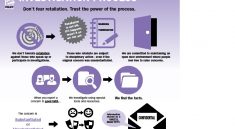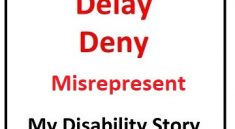Thrivent investigated by Illinois Securities Department for fraud in sale of variable annuities, Thrivent appeal denied
From the Cook County Record.
“A state appeals panel has dealt a setback to Thrivent Investment Management’s efforts to thwart a state investigation into the company’s activities.
On Aug. 28, a three-justice panel of the Illinois First District Appellate Court ruled in an unpublished order to affirm a Cook County judge’s decision to reject a lawsuit filed by Thrivent to stop the Illinois Securities Department, under the Illinois Secretary of State’s office, from “investigating allegations that Thrivent committed fraud in the sale of variable annuities.”
The order, which was authored by Justice Carl Anthony Walker, was issued under Supreme Court Rule 23, which limits its use as precedent.
Thrivent had request an injunction to shut down the Illinois Securities Department’s investigation after the state regulatory agency in October 2015 had “sent a Statement of Evidence to Thrivent, alleging Thrivent committed acts that could subject Thrivent to suspension of its registrations as an investment adviser and securities dealer.”
Thrivent sued, alleging the investigation “centered on Thrivent’s sales of variable annuities, and the Illinois Department of Insurance had exclusive jurisdiction over sales of variable annuities.””
Read more:
From the appeal.
“Thrivent Investment Management, Inc., filed a complaint for an injunction to bar the Illinois Secretary of State Securities Department (Securities Department) from investigating
allegations that Thrivent committed fraud in the sale of variable annuities. Thrivent amended the complaint to add a claim that the Securities Department’s discovery requests violated
Thrivent’s constitutional rights. The circuit court dismissed the complaint with prejudice and denied Thrivent’s motion for leave to file another amended complaint.”
“Held: The Illinois Secretary of State Securities Department has authority to investigate allegations that a registered securities dealer committed fraud in the sale of variable annuities, even though the Department of Insurance has sole authority to regulate the
issuance and sale of variable annuities. Oppressive discovery requests do not violate a respondent’s constitutional rights unless judicial discovery procedures will not adequately protect the respondent’s rights.”
http://www.illinoiscourts.gov/R23_Orders/AppellateCourt/2018/1stDistrict/1171913_R23.pdf



